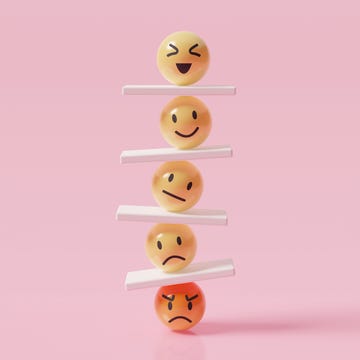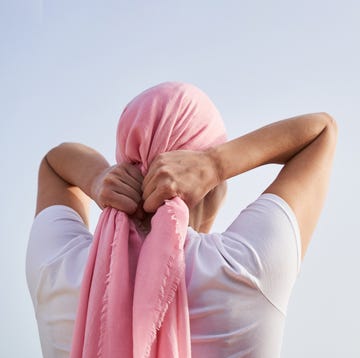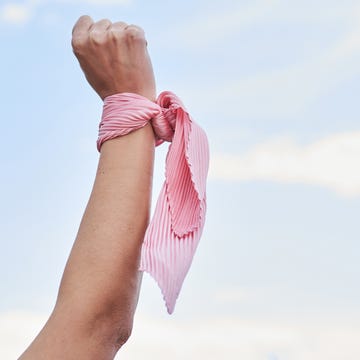Survivalists have given prepping a bad rep, says Lucy Easthope, Britain’s leading authority on emergency planning and disaster recovery. Readying yourself for an unspecified disaster has unfortunate associations with straggly beards and shotguns. Yet as yesterday’s power outage in Spain showed so clearly, disasters can strike anyone, any time, anywhere. And when we’re left without our creature comforts - or even basics like light and power - it can leave you disorientated and vulnerable. So wouldn’t it be wise for all of us to be a bit more prepared?
Yes it would, says Easthope, whose new book Come What May, is published next month. ‘This isn’t about neurotically obsessing over some impending Apocalypse,’ she explains. ‘A lot of Europeans, Australians and Americans already do this. They’re amazed we don’t prepare the car better in anticipation of bad weather, or have a tornado or hurricane cupboard in the house.’
By getting the essentials in place for an emergency, she says, you’re actually taking anxiety away, not feeding it. This will also build resilience, self-reliance and resilience. So what should we all have at hand, just in case?
In your handbag
‘In emergency planning we call this a ‘go bag’,' says Easthope. ‘I have chocolate and a spare pair of pants in mine. But some essentials are really helpful to keep on you, and a lot of people – especially parents – will have them already…'
- A short supply (48 hours) of your prescription medicines
- A short supply of basic non-prescription meds (eg painkillers, plasters, antiseptic wipes or spray)
- A bottle of water
- A snack or a power bar
- Your phone
- A portable phone charger or power bank
In your car
‘Being prepared for what you might see, and what you might do to take charge of the situation, can be just as helpful as having the right kit,’ says Easthope. To which end, she recommends taking a basic first aid course and learning a few practical skills, like how to change a tyre. That said, she also recommends having the following, as standard, in your boot:
- Water
- Snacks (to last you 24 hours)
- Pet food, if you’re travelling with pets
- A water bowl for pets (ditto)
- A slightly more advanced first aid kit – the website citizenAID has good ones that equip you for more serious situations, like bleeding injuries.
- A blanket
- A torch
- The app ‘what3words’ downloaded on your phone (it will you enable you to share your location in an exact and succinct fashion)
- A roadmap (and the ability to read it) in case your phone dies
- A compass
In your home
‘Sometimes, what’s better than the kit is conversation,’ says Easthope. ‘Have a calm conversation with your family or flat mates about how you’d act and what you’d do in a crisis.’ That said, she recommends having some basics stored somewhere safely.
‘This is not a prepping basement,’ she stresses. ‘It’s not designed to get you through the apocalypse. The British government now recommends us to think in terms of preparedness for 72 hours of sheltering in place.’ To which end, you might consider gathering:
- Snacks with a long shelf life
- Torches (ideally not battery operated – rechargeable or wind up)
- Rechargeable lights, charged and tested monthly (not candles – fires exponentially increase during power cuts)
- Board games
- Three or four days-worth of tinned food (and a tin opener!)
- Dry foods (nuts, seeds, dried fruit)
- 20 litres of bottled water
- A generator (especially if you’re rural)
- Three or four days of prescription medicines
- Basic non-prescription medicines
- Wet wipes (should we lose power at a national level, our sewage and water systems would also be affected)
- A comprehensive pre-packed first aid kit (checked regularly – ideally every 8 weeks – for sell-by dates)
- A good range of plasters and gauzes – including mix of sizes, shapes, waterproofing etc.
- Nappies (if you have children of that age)
- Pre-made formula milk (if you have a baby in the house)
- Pet food and bowls
- Batteries
- A radio (rechargable or wind-up)
- A cool box – to move refrigerated things, like milk, into. But beware: ‘Be circumspect,’ says Easthope. ‘Move over to your tinned foods as soon as you think it may be in danger of spoiling. The one thing you really don’t want, in a crisis, is food poisoning.’













